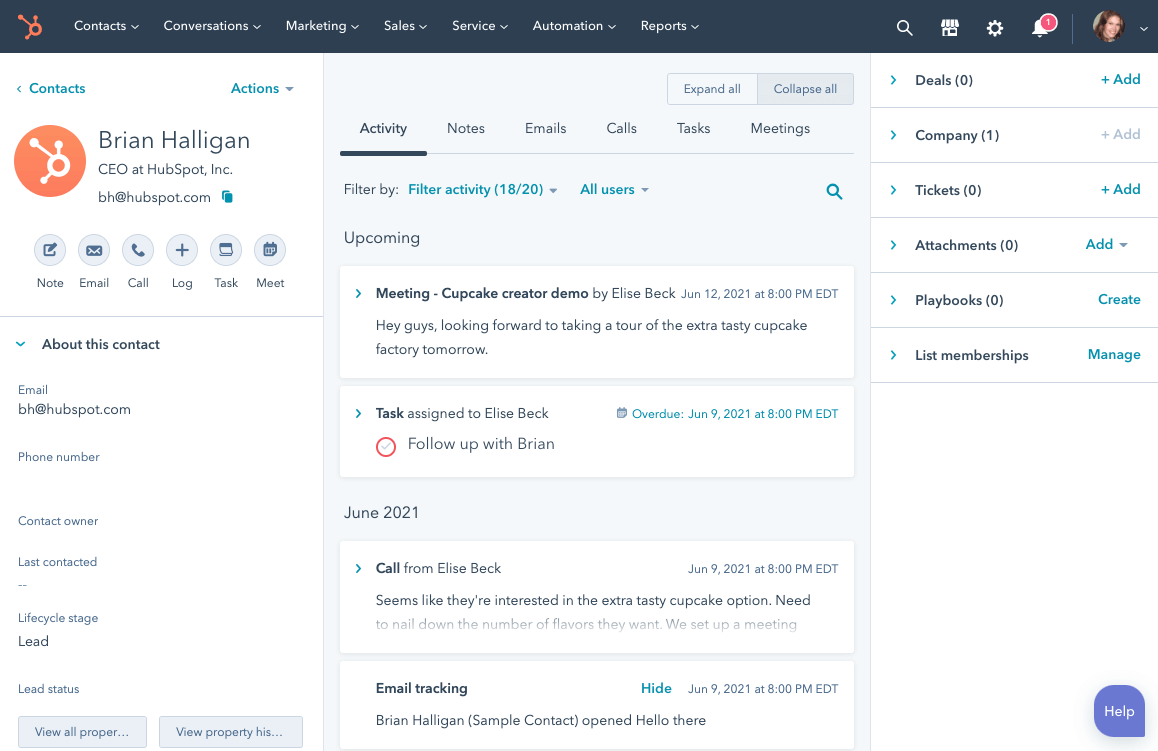Best Shopify CRM: Enhance Your Customer Relationships and Boost Sales
Are you a Shopify store owner looking to improve customer relationships and drive sales? A robust Customer Relationship Management (CRM) system can be your secret weapon. But with so many options available, choosing the right Shopify CRM can feel overwhelming. This comprehensive guide will help you navigate the landscape and select the perfect CRM to streamline your business operations and elevate your customer experience.
Understanding the Importance of a Shopify CRM
Before diving into specific CRM options, let’s understand why a CRM is crucial for your Shopify store. Think of your CRM as your central hub for all customer-related information. It consolidates data from various sources, giving you a 360-degree view of each customer. This unified view empowers you to personalize interactions, anticipate customer needs, and ultimately, increase sales and customer loyalty.
Keywords: Shopify CRM, customer relationship management, CRM for Shopify, improve customer relationships, drive sales, enhance customer experience, streamline business operations, customer loyalty, personalized interactions.
Key Features to Look for in a Shopify CRM
Choosing the right Shopify CRM involves considering several essential features. Not all CRMs are created equal, and the ideal solution will depend on your specific business needs and budget. Here are some key features to prioritize:
-
Seamless Shopify Integration: This is paramount. The CRM should effortlessly integrate with your Shopify store, automatically syncing customer data and order information. Avoid CRMs that require manual data entry – it’s time-consuming and prone to errors.
-
Customer Segmentation: The ability to segment your customer base based on demographics, purchase history, behavior, and other criteria is crucial for targeted marketing campaigns. Personalized messaging resonates more effectively than generic blasts.
-
Marketing Automation: Automate repetitive tasks like email marketing, follow-up messages, and abandoned cart reminders. This frees up your time to focus on strategic initiatives.

-
Reporting and Analytics: Robust reporting capabilities allow you to track key metrics, such as customer lifetime value (CLTV), conversion rates, and campaign performance. Data-driven insights guide your decision-making and optimize your strategies.

Customer Support: Reliable customer support is essential, especially when troubleshooting issues or seeking guidance on using the CRM. Look for CRMs with responsive and knowledgeable support teams.

Keywords: Shopify CRM features, seamless integration, customer segmentation, marketing automation, reporting and analytics, customer support, targeted marketing, personalized messaging, data-driven insights, customer lifetime value (CLTV), conversion rates, campaign performance.
Top Shopify CRM Options: A Detailed Comparison
Now let’s explore some of the top Shopify CRM options available, categorized by pricing and features. Remember, the "best" CRM depends on your unique needs and budget.
| CRM Name | Pricing Model | Key Features | Strengths | Weaknesses |
|---|---|---|---|---|
| Shopify’s built-in CRM | Included in Shopify plan | Basic customer data, order history, segmentation | Simple, easy to use, no additional cost | Limited features, lacks advanced automation |
| Klaviyo | Freemium, paid plans | Email marketing, SMS marketing, segmentation, automation | Powerful marketing automation, excellent email deliverability | Can be complex for beginners |
| HubSpot | Freemium, paid plans | Comprehensive CRM, marketing automation, sales tools | Wide range of features, strong ecosystem | Can be overwhelming, steep learning curve |
| Gorgias | Paid plans | Customer support, live chat, email management, automation | Excellent for customer service, integrates well with Shopify | Primarily focused on customer support, less emphasis on marketing |
| Smile.io | Paid plans | Loyalty program, rewards points, customer referrals | Great for building customer loyalty | Limited CRM features outside of loyalty programs |
Keywords: Klaviyo, HubSpot, Gorgias, Smile.io, Shopify CRM pricing, CRM comparison, email marketing, SMS marketing, customer service, live chat, loyalty program, rewards points, customer referrals.
Choosing the Right Shopify CRM for Your Business
Selecting the best Shopify CRM requires careful consideration of your specific needs and resources. Ask yourself these questions:
- What’s your budget? Free options exist, but paid CRMs often offer more advanced features.
- What are your marketing goals? If email marketing is crucial, prioritize CRMs with robust email capabilities.
- What’s your level of technical expertise? Some CRMs are easier to use than others.
- What’s your customer support needs? Consider the level of support offered by each CRM.
By answering these questions, you can narrow down your choices and select the CRM that best aligns with your business objectives.
Keywords: Shopify CRM selection, budget considerations, marketing goals, technical expertise, customer support needs, CRM features, best Shopify CRM for small business, best Shopify CRM for large business.
In-depth Look at Popular Shopify CRM Options
Let’s delve deeper into some of the leading Shopify CRM options.
1. Klaviyo: Klaviyo is a powerful marketing automation platform that seamlessly integrates with Shopify. Its strength lies in its sophisticated email and SMS marketing capabilities. You can segment your audience, create personalized campaigns, and automate email sequences to nurture leads and drive conversions. Klaviyo’s excellent email deliverability is another significant advantage. However, it can be complex for beginners, requiring some time to master its features.
Keywords: Klaviyo review, Klaviyo features, Klaviyo pricing, email marketing automation, SMS marketing automation, email deliverability, Klaviyo integration with Shopify.
2. HubSpot: HubSpot is a comprehensive CRM platform that goes beyond basic customer management. It offers a wide range of tools for marketing, sales, and customer service. Its marketing automation capabilities are robust, allowing you to create complex workflows and automate various tasks. However, HubSpot’s extensive features can be overwhelming for smaller businesses, and the learning curve can be steep.
Keywords: HubSpot review, HubSpot features, HubSpot pricing, marketing automation, sales tools, customer service tools, HubSpot integration with Shopify.
3. Gorgias: Gorgias excels in customer support. It provides a unified platform for managing customer inquiries across various channels, including email, live chat, and social media. Its automation features streamline support processes, enabling faster response times and improved customer satisfaction. However, Gorgias’s focus on customer service means it may lack the extensive marketing automation capabilities of other CRMs.
Keywords: Gorgias review, Gorgias features, Gorgias pricing, customer support, live chat, email management, social media management, Gorgias integration with Shopify.
4. Smile.io: Smile.io is a loyalty and rewards program platform. While not a full-fledged CRM, it helps build customer loyalty by rewarding repeat purchases and referrals. It integrates seamlessly with Shopify, allowing you to easily manage your loyalty program. However, its functionality is primarily limited to loyalty programs and lacks the broader CRM features of other options.
Keywords: Smile.io review, Smile.io features, Smile.io pricing, loyalty program, rewards program, customer referrals, Smile.io integration with Shopify.
Beyond the Top 4: Other Notable Shopify CRM Options
While Klaviyo, HubSpot, Gorgias, and Smile.io are among the most popular, several other noteworthy options cater to specific needs. These include:
- Loyalzoo: Focuses on loyalty programs and rewards.
- Omnisend: Strong email and SMS marketing capabilities.
- ContactPigeon: Comprehensive marketing automation and customer engagement platform.
Keywords: Loyalzoo, Omnisend, ContactPigeon, Shopify CRM alternatives.
Conclusion
Choosing the right Shopify CRM is a significant decision that can significantly impact your business’s growth. Carefully consider your budget, marketing goals, technical skills, and customer support needs. Start by testing free plans or trials to determine which CRM aligns best with your workflow and business objectives. Remember, a well-implemented CRM can foster stronger customer relationships, streamline operations, and drive substantial revenue growth.
Keywords: Shopify CRM conclusion, choosing the right CRM, CRM implementation, customer relationship management, revenue growth, business growth.
FAQ
Q: Is a Shopify CRM necessary for my small business?
A: While not strictly mandatory, a CRM can significantly benefit even small businesses. It helps organize customer data, improve communication, and streamline processes, ultimately saving you time and effort. Consider your budget and needs; a basic CRM might be sufficient for starters.
Q: How much does a Shopify CRM cost?
A: Costs vary widely depending on the CRM and its features. Some offer free plans with limited functionality, while others have tiered pricing based on features and the number of contacts. Expect to pay anywhere from free to several hundred dollars per month.
Q: Can I integrate multiple CRMs with my Shopify store?
A: Technically, you can, but it’s generally not recommended. Integrating multiple CRMs can lead to data inconsistencies and complications. Choose one CRM that meets your needs and focus on effectively utilizing its features.
Q: How long does it take to implement a Shopify CRM?
A: Implementation time depends on the CRM’s complexity and your team’s technical skills. Simple CRMs can be set up within hours, while more complex ones may require days or even weeks.
Q: What are the key performance indicators (KPIs) to track after implementing a Shopify CRM?
A: Key KPIs include customer lifetime value (CLTV), customer churn rate, conversion rates, email open and click-through rates, and customer satisfaction scores. These metrics help assess the CRM’s effectiveness in improving your business outcomes.
Keywords: Shopify CRM FAQ, CRM cost, CRM integration, CRM implementation time, CRM KPIs, customer lifetime value (CLTV), customer churn rate, conversion rates, email marketing metrics, customer satisfaction.
